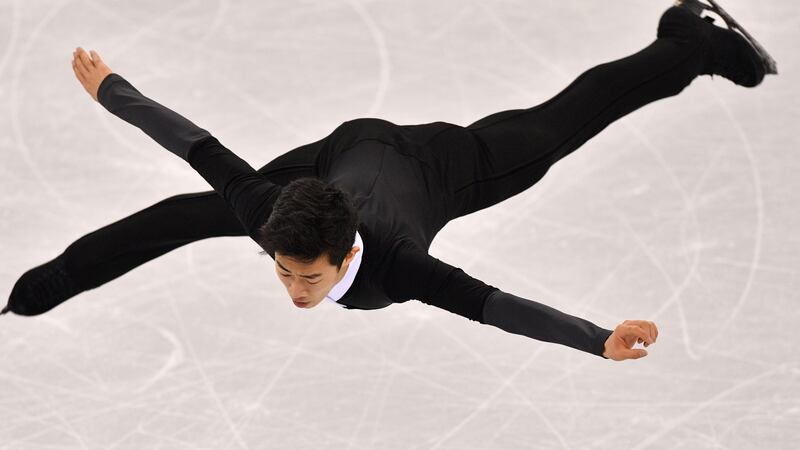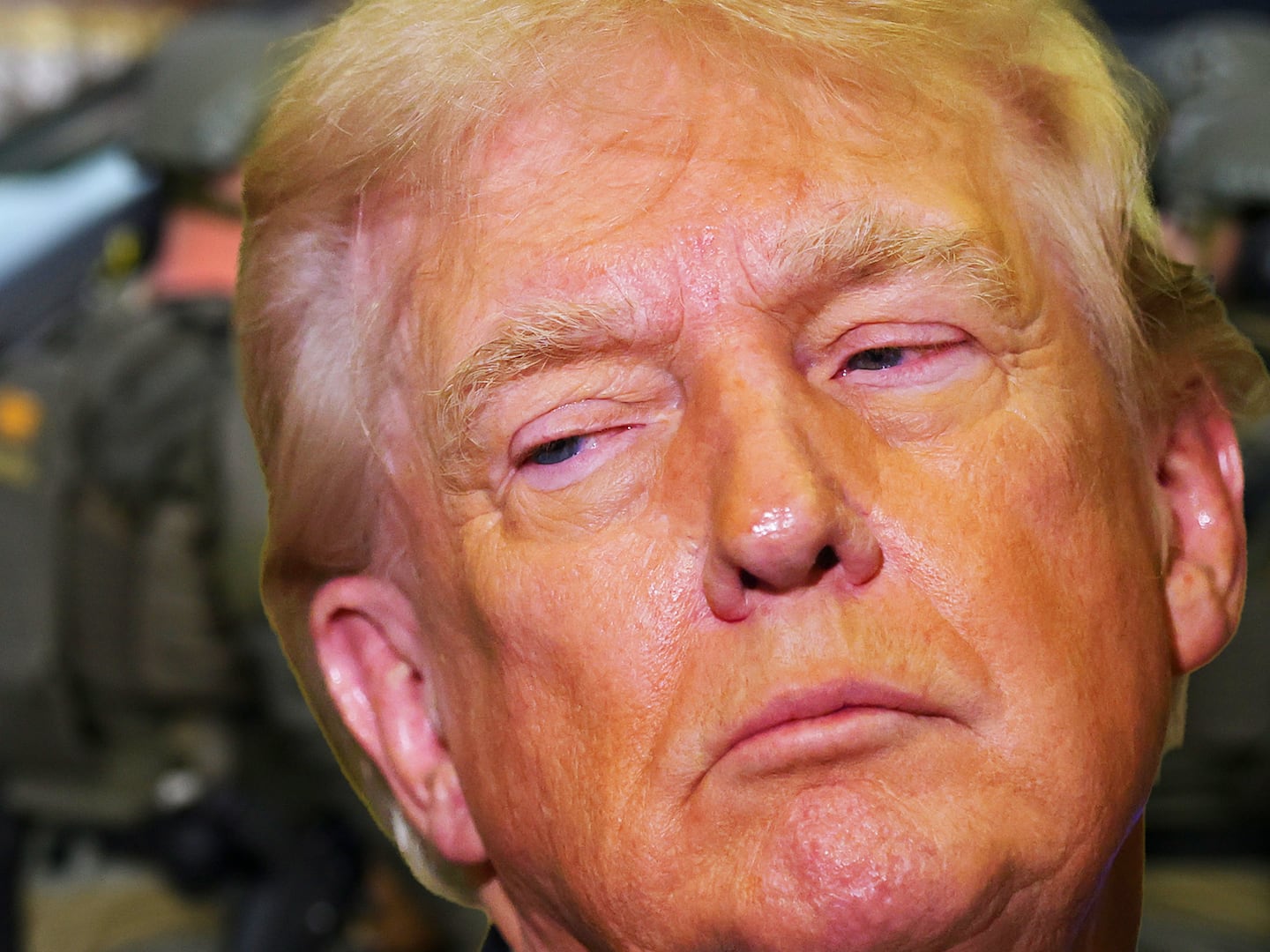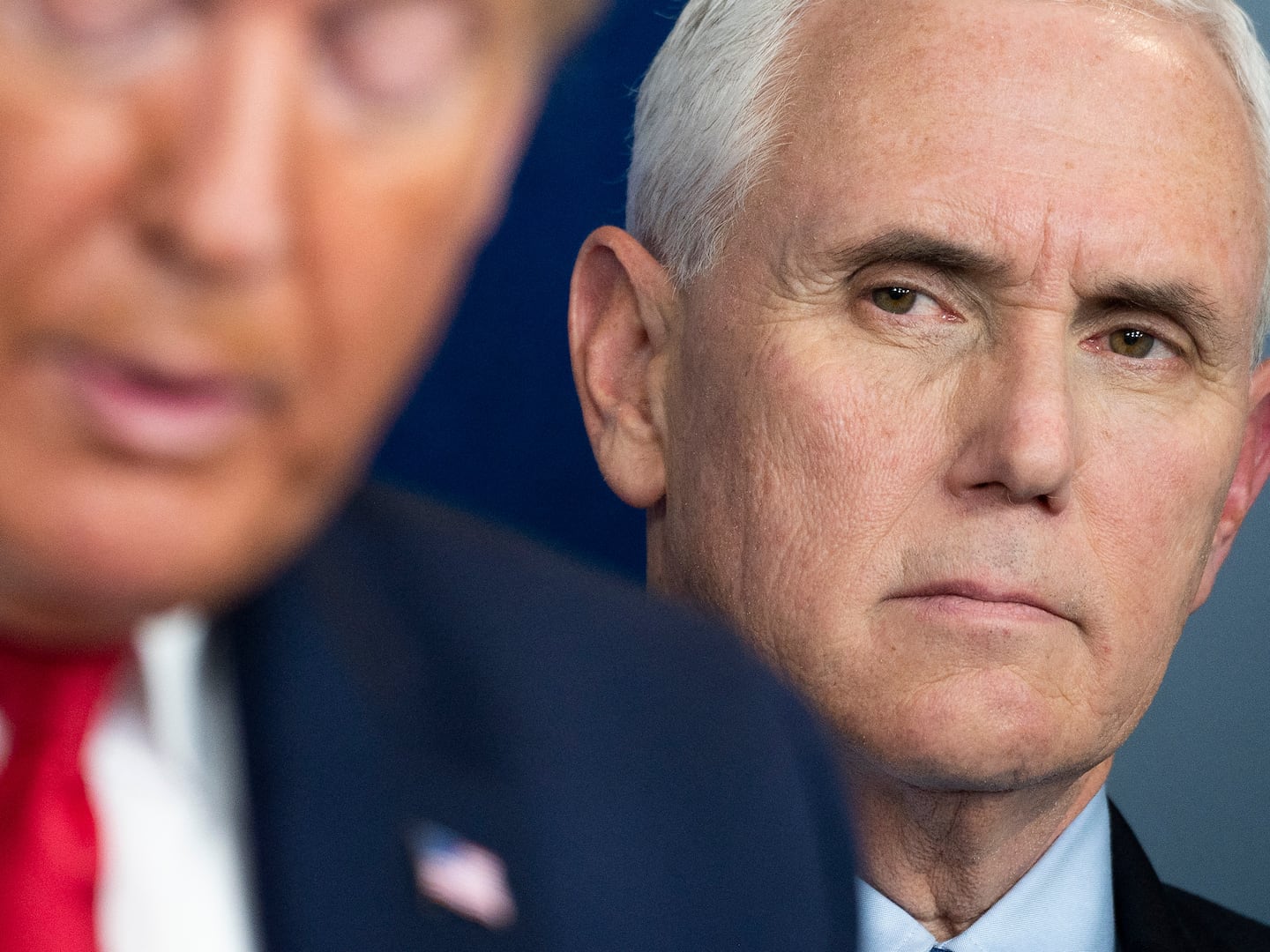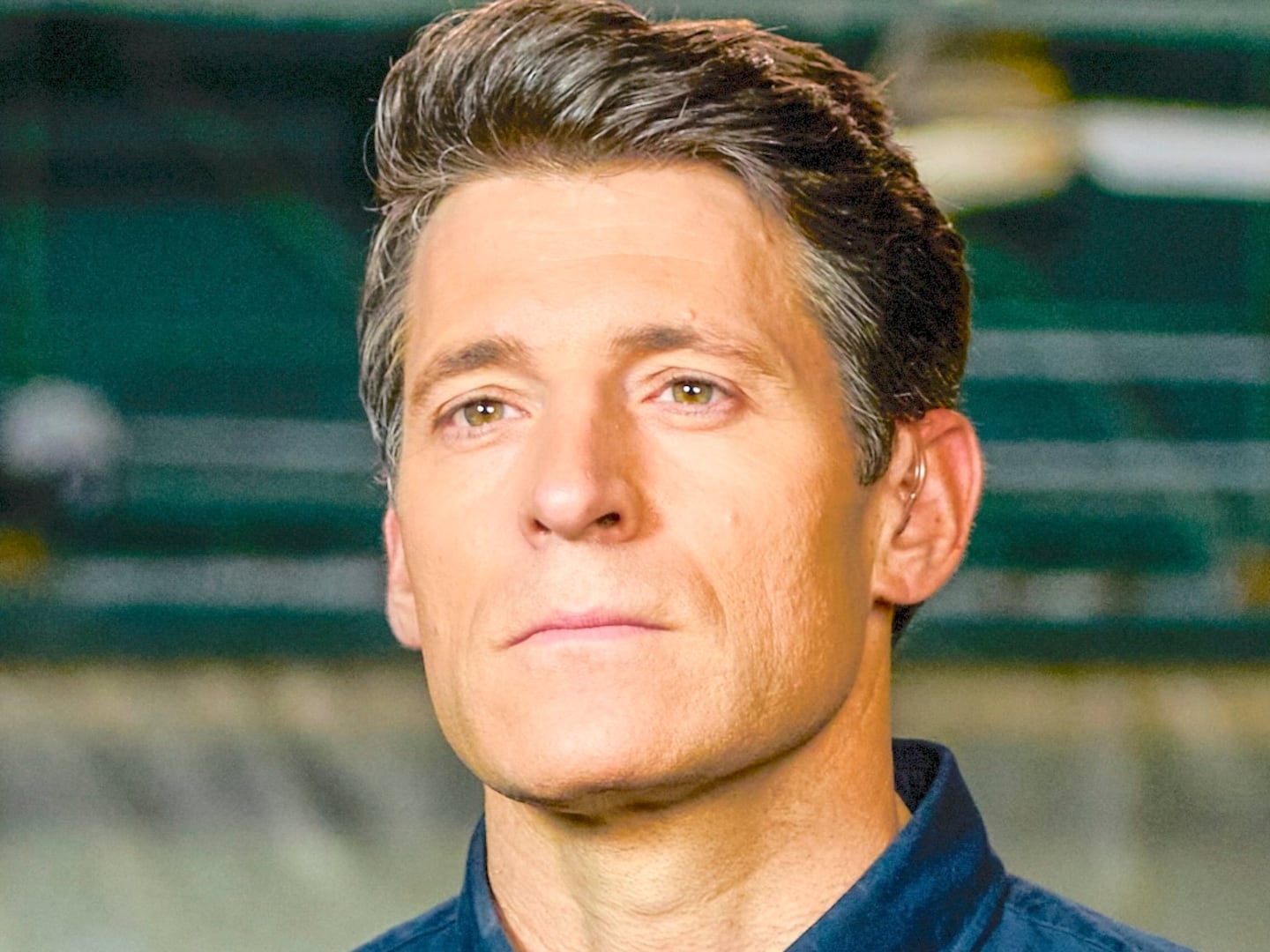The American male figure skaters—Nathan Chen, Adam Rippon, and Vincent Zhou—have each made history. So breathless and astonished are we over the skills and star power they exhibited, in fact, that we almost forget that they completely miffed it at the Olympics.
Yes, for the second Olympics in a row, not a single American man medaled in figure skating. But boy does that not seem to matter, with the Holy Trinity of ice gods throwing up bonafide miracles, both on the ice and off
From the ashes of their failed Olympic bids—Chen finished 5th, Zhou 6th, and Rippon 10th—rose these bodysuit-wearing phoenixes, icons of resilience, quad jumps, and sass, respectively changing the way we armchair critics at home see skating, sports, sexuality, masculinity, and patriotism. Medals be damned.
First there’s young Vincent Zhou. While overshadowed by the hype for Quad King Nathan Chen and media darling Adam Rippon, the 17-year-old was arguably the biggest success story of the short program, becoming the first figure skater to ever land a quadruple lutz at the Olympics.
Then came his rousing free skate Friday night. It was the kind of athletic, spirited end to an Olympic run that makes your heart swell. In a sparkly red top, he skated to, as seemingly at least one performer from each country is legally compelled to, a selection from the Moulin Rouge! soundtrack. He nailed a huge technical score, breaking down into tears by its triumphant end.

I can strongly identify with a 17-year-old moving himself to tears with his dance to the Moulin Rouge! soundtrack.
The comeback story of the entire Olympic Games thus far, of course, is Nathan Chen. Man, did that guy stink up the short program. He followed eventual gold medal-winner Yuzuru Hanyu of Japan, whose magnetic skate played swimmingly to his legion of fans in the stands, all of whom aggressively pelted him with stuffed Winnie the Pooh bears immediately after the skate concluded. This is evidently a normal thing for Hanyu, but it seemed to completely throw Chen off his game. Our Quad King turned a skate that barely deserved a perfunctory tossing of some Eeyores.
He fell twice, finishing a lousy 17th after the short program, having to make up 22 points and hope that a handful of skaters ate ice in order to have a shot at the bronze. It seemed damned near impossible, until Chen delivered the skate of his life, making history while he was at it.
Our spinning hero in an elegant black bodysuit launched with a quad lutz and never relented. He became the first man to attempt to six quad jumps in competition, cleanly landing five of them. Even the one he botched earned him crazy technical points, because of the judging quirks that reward you for attempting quads even if you have a sloppy landing. (We still think that rule’s bullshit, but go, Nathan!)
To come off a skate as miserable and disappointing as his short program was, setting a grenade to an entire country’s high expectations for the gold medal you could bring them, and then coming out the next day to deliver a skate so spectacular is almost unthinkable. Contributing your best when your missteps have you counted out—there’s something peculiarly American about that.
But then. But then there’s Adam Rippon. That short program Thursday night was something else. Sporting a sheer maroon elbow-length top with spangled leather embellishments, Rippon was serving ‘90s gay club fashun and there wasn’t a soul watching who wasn’t here for it. He skated to the indelible club bop “Let Me Think About It,” as a nation of gays watching fondly reminisced about their vodka-soda-soaked summers on the dance floor of Posh.
As usually is the case with Rippon, it was his persona between skates that made headlines. He gave one of the strangest, most delightful post-skate interviews we’ve seen following the short program, attributing witchcraft to his late-career surge and measuring his excitement on a scale of Meryl Streeps. He could barely disguise his wily grin as he ribbed otherwise staid interviewer Andrea Joyce: “I went out there and I was like, Adam, Andrea’s watching and you have to go out there and do it for her. Because she’s wearing a statement necklace and you’re at the Olympics.”
Honestly, when was the last time you saw an athlete actually enjoy being at the Olympics? And, finally, a gay figure skater being unabashedly himself?
As Sam Greisman wrote on Twitter, "an openly, 'non-passing,' sassy, beautiful gay 20-something daring America not to love him and becoming the sweetheart of the Olympic Games is very moving" to a lot of people.
There’s this thing that happens when you’re a gay man in the generation that Rippon and I share, where you spend much of your life shrinking who you are to conform, in contrast to the watershed moments in your life when you unapologetically seize the spotlight and dance in it as your true self. Like any good gay, Rippon knows how to find his light, and he’s taking advantage of every last second of it at the games. We’re envious of all the young people who get to witness it.
And that leads us to our biggest point when it comes to Adam Rippon. On behalf of gays everywhere, we want to thank this sassy, gregarious, sometimes off-putting, often-fabulous superstar for NOT FALLING.
Rippon performed a beautiful, clean free skate. He’s not a jumper. He was never going to be a medal contender because he doesn’t have a quad, a fact that he is self-aware about. All of the collective energy the nation sent him as we watched his routine with bated breath couldn’t spin that fourth, competitive rotation.
To be honest, watching Rippon’s lyrical, languid routine, I wouldn’t want him to ruin the beauty of it by attempting a quad and landing on his ass like so many of competitors, just for the sake of points. (Props to Johnny Weir for pointing out this problematic scoring system, likening it to football: If Tom Brady throws a pass and the receiver misses it, the Patriots don’t get points just because he tried it.)
Rippon actually finished top among the Americans after the short program, though he was bottom after the free skate. (So vers, that guy.) But to reiterate the point, he did not fall. That means something, not just to Team U.S.A. at the Olympics, but to the hopeful gay community for which he’s become an avatar throughout these games.
You can’t take his skating away from him. He did that. He wasn’t a jester, or a sideshow that would be easy to write off because of his cheeky public persona. I mean he was that, sure, but he was a skater, too—a damn good one. He was a skater who did his job, arguably more competently than his countrymen. He was a gay on a sports stage of this caliber who you can’t dismiss. He did that for us.
Technically, the American men failed. They didn’t medal. That’s not good! But they’ve each contributed so much more.
Through their skating, and, in Rippon’s case, through his mere, fearless existence, they’ve changed our opinion of what is possible. In their discipline, yes: we’re bracing ourselves for the dizziness of quintuple jumps and endless quads in 2022. But also in how we define athleticism, strength, masculinity, and sports stardom as a culture.
Zhou, Chen, and Rippon made history. If only there was a podium for that.






